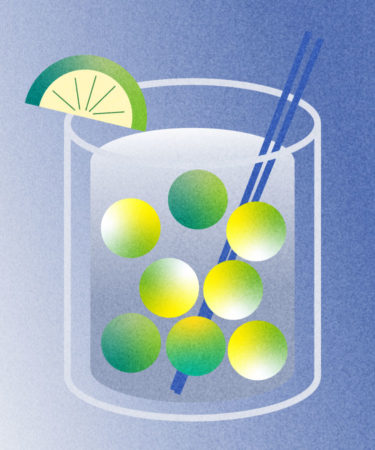Drink more gin, help save the world? It sounds too good to be true, but a group of scientists and distillers in Scotland may have figured out a way.
Kirsty Black, master distiller at Arbikie Highland Estate Distillery, has spent the past five years pursuing a PhD at Abertay University and the James Hutton Institute, in Dundee, on Scotland’s eastern coast. Her study of both the environmental and boozy potential of peas and other pulses has resulted in the world’s first “climate positive gin,” whose distilling process has a negative carbon footprint, meaning it removes more carbon dioxide from the environment than it creates.
Nàdar Gin is produced primarily from peas, rather than another grain sugar source such as malted barley or corn. Peas source nitrogen from the atmosphere while growing, meaning they don’t require harmful synthetic fertilizers to grow, and in fact permanently improve soil quality after harvest.
The gin’s negative carbon footprint — and positive impact – is also aided by recycling the protein-rich leftovers of the distilling process (also known as “pot-ale”) as animal feed for farms near the distillery, thereby eliminating some of the need to import feed from far away.
Graeme Walker, Professor of Zymology at Abertay, and Black’s supervisor, said he’s “delighted” by the “genuinely innovative” spirit.
In addition to peas and “the right blend of academic expertise and industry know-how,” Nàdar Gin is made with natural botanicals, including citrus leaf and lemongrass, and has a “fresh and fruity” flavor, according to Black.
A gin that’s tasty and good for the environment? Sounds like it’s time to give peas a chance.
